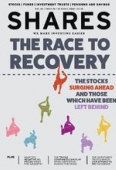Archived article
Please note that tax, investment, pension and ISA rules can change and the information and any views contained in this article may now be inaccurate.
How and why you might invest in property

As an asset class it has taken a battering in the wake of 2020’s coronavirus crisis but there are a number of reasons why investors might consider property as part of a diversified portfolio over the long term.
First of all, as a physical asset class its performance tends to diverge from equities and bonds so it can offer genuine diversification in terms of return.
It is also perceived to be a good hedge against inflation. It is a tangible, physical asset and – like gold or agricultural commodities – as such is expected to hold its value better than paper assets which typically see their value eroded by rising prices.
Property offers the prospect of yield (from rental income) alongside capital gain (from an appreciation in its value). So the asset class also, in theory at least, has attractive fundamentals.
WHY IT IS HARD TO INVEST DIRECTLY
For investors with limited capital, investing directly in property is tricky. In terms of risk, if we are already on the property ladder we will effectively be ‘overweight’ residential property even if your own home should not be considered an investment in the traditional sense.
Another issue with investing in property directly is a lack of diversification. Unless you are blessed with substantial amounts of capital then you are unlikely to be able to buy more than one or two properties at most.
Even then, any additional purchases of residential property will likely be made using buy-to-let mortgages and regulation and costs in buy-to-let have increased significantly in recent years.
Commercial property can be split into three broad categories: offices, retail and industrial. However, only extremely high net worth individuals can afford to invest directly. It would be difficult for ordinary investors to buy part of a tower block, for example.
A final issue is one of liquidity. As anyone who has ever moved house will know, it takes time to buy and sell a property even assuming you have a willing purchaser.
WAYS TO PLAY PROPERTY
The listed-contingent with exposure to the property market includes construction firms, housebuilders, property developers and landlords of commercial property. Holding shares in a property developer may not have the same effect as owning a house, but these companies will generate higher profits when property prices rise, which in turn will deliver higher dividends and capital growth.
Real estate investment trusts (REITs) are another way of gaining exposure to this market. These vehicles are allowed, in return for extra regulation, a tax regime that almost replicates the situation you would face if holding property directly.
The core business of REITs is protected from corporation tax, allowing the distribution of rent payments from their tenants to flow straight through to your dividend without being hit by extra levies.
In theory a REIT should provide good levels of income as they are forced to pay out 90% of the profits from their core business within one year, meaning a steady stream of dividends. A number of REITs feature in the FTSE 350 index: including British Land (BLND) and Land Securities (LAND).
Funds and investment trusts are popular with retail investors seeking exposure to a wide range of sectors and asset classes, and property is no different. You can find a rough list of property unit trusts on the website of the Association of Real Estate Funds. There are also a number of exchange-traded funds which offer exposure to property.
During spells of volatility, like that seen in the wake of the EU referendum result and the coronavirus outbreak, property investment trusts and exchange-traded funds (ETFs) are arguably at an advantage to traditional funds because they do not expand or contract in size depending on fund inflows and outflows.
They therefore do not have to sell interests in properties to meet redemptions during periods of market panic. Though they may trade at a discount to the estimated value of their assets.
PROPERTY FUNDS SUSPENDED
Investors in open-ended property funds, which invest directly in offices, shopping centres and warehouses, can only get their money out if the fund’s manager redeems their units. As a security measure such funds keep a cash cushion to meet demand from any investors wanting out.
But a spate of withdrawals in the wake of the referendum and problems with valuing properties following the coronavirus pandemic led to the suspension of several property funds.
Tighter rules are being introduced to try and mitigate these issues for ordinary investors. However, the fundamental problem is one of providing the ability to trade daily in a fund which invests in an asset which can take a lot longer to buy or sell.
Important information:
These articles are provided by Shares magazine which is published by AJ Bell Media, a part of AJ Bell. Shares is not written by AJ Bell.
Shares is provided for your general information and use and is not a personal recommendation to invest. It is not intended to be relied upon by you in making or not making any investment decisions. The investments referred to in these articles will not be suitable for all investors. If in doubt please seek appropriate independent financial advice.
Investors acting on the information in these articles do so at their own risk and AJ Bell Media and its staff do not accept liability for losses suffered by investors as a result of their investment decisions.
 magazine
magazine










